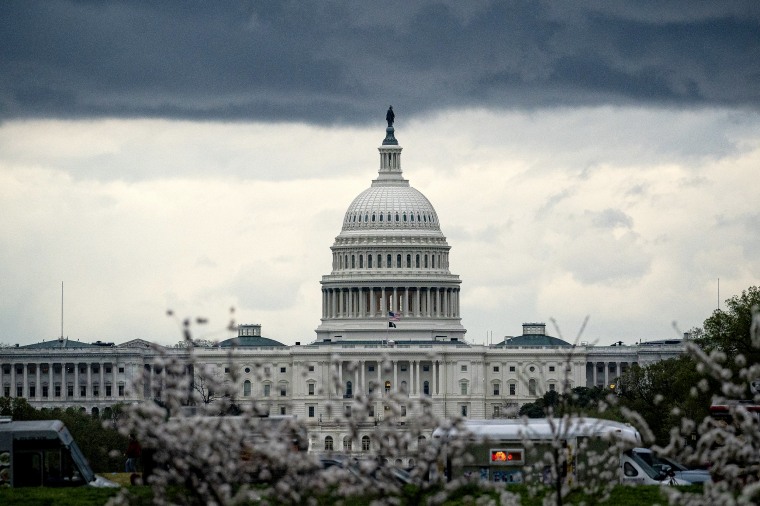When temperatures in Oregon reach 117 degrees, it's bound to affect the public conversation about global warming. As a political matter, however, it's an open question as to what congressional Republicans have to contribute to this conversation.
The New York Times reported the other day that are hints of a slight shift in GOP politics, at least among some Republican lawmakers.
When Representative John Curtis quietly approached fellow Republicans to invite them to discuss climate change at a clandestine meeting in his home state of Utah, he hoped a half dozen members might attend. Soon the guest list blew past expectations as lawmakers heard about the gathering and asked to be included. For two days in February, 24 Republicans gathered in a ballroom of the Grand America Hotel in Salt Lake City where they brainstormed ways to get their party to engage on a planetary problem it has ignored for decades.
"Some came with the promise of being anonymous. It's terrible that Republicans can't even go talk about it without being embarrassed," Curtis told the newspaper.
The motivations behind the GOP's interest appear to be less than inspiring. The Times added, "[M]any in the Republican Party are coming to terms with what polls have been saying for years: independents, suburban voters and especially young Republicans are worried about climate change and want the government to take action."
Or put another way, some GOP officials are prepared to take the issue seriously, not because of the environmental threat, but because failing to take the issue seriously might hurt the party's electoral prospects.
But for now, let's put that aside and focus instead on what Republicans are prepared to do about the crisis. In the short term, the plan apparently includes the formation of a new group on Capitol Hill: Utah's John Curtis last week formed the Conservative Climate Caucus, which will apparently reject "radical progressive climate proposals," but cultivate conservative-friendly solutions.
According to a preliminary tally, the Conservative Climate Caucus has 52 members in the House, which means roughly a fourth of the House Republican conference is willing to be associated with the contingent.
But what about actual governance? The Times went on to report:
A package of bills [House Minority Leader Kevin McCarthy] introduced on Earth Day championed carbon capture.... It also promoted tree planting and expansion of nuclear energy, a carbon-free power source that many Republicans prefer over wind or solar energy. Those policies would do little to reduce the fossil fuel emissions that are driving up average global temperatures and causing more extreme heat, drought and wildfires; more intense storms; and rapid extinction of plant and wildlife species. Republicans have not offered any specific targets for cutting emissions.
In case this isn't obvious, let's make the concern plain: if a significant number GOP policymakers are finally serious about addressing the intensifying climate crisis, great. If Republicans want to be able to tell certain voting constituencies that they're not climate deniers -- using the Conservative Climate Caucus and ineffective ideas as fig leaves -- that's not great at all.
I'm glad that some members of the radicalized House Republican conference no longer see blanket climate denial as a sustainable political position. It's a welcome step toward reality that should've happened years ago, and it might help change the political conversation.
But until GOP lawmakers endorse meaningful solutions, it's not enough.
